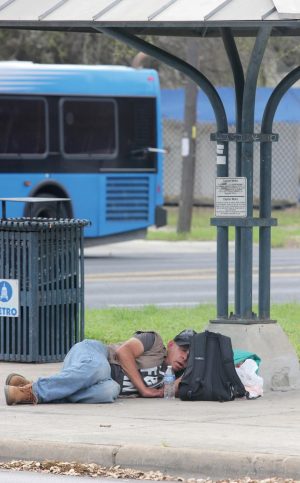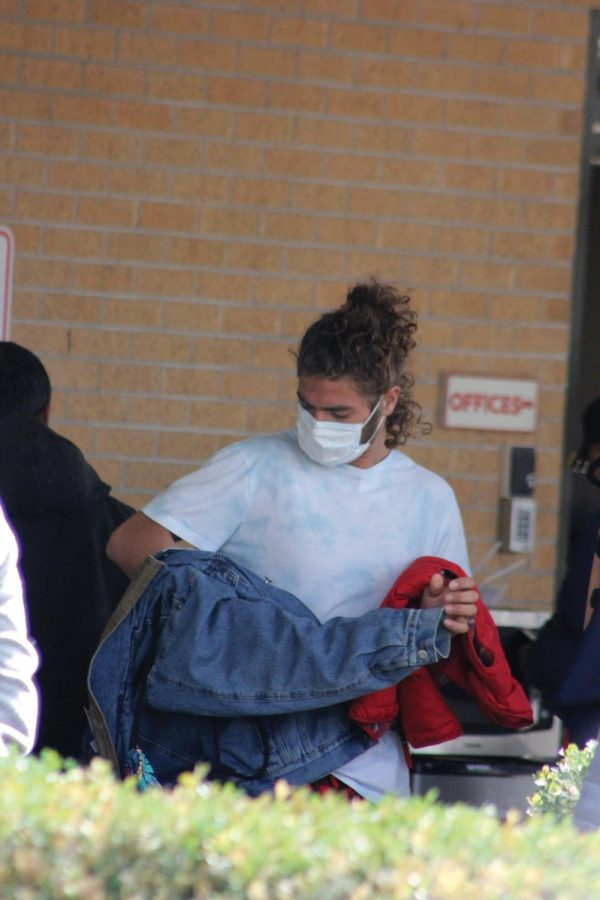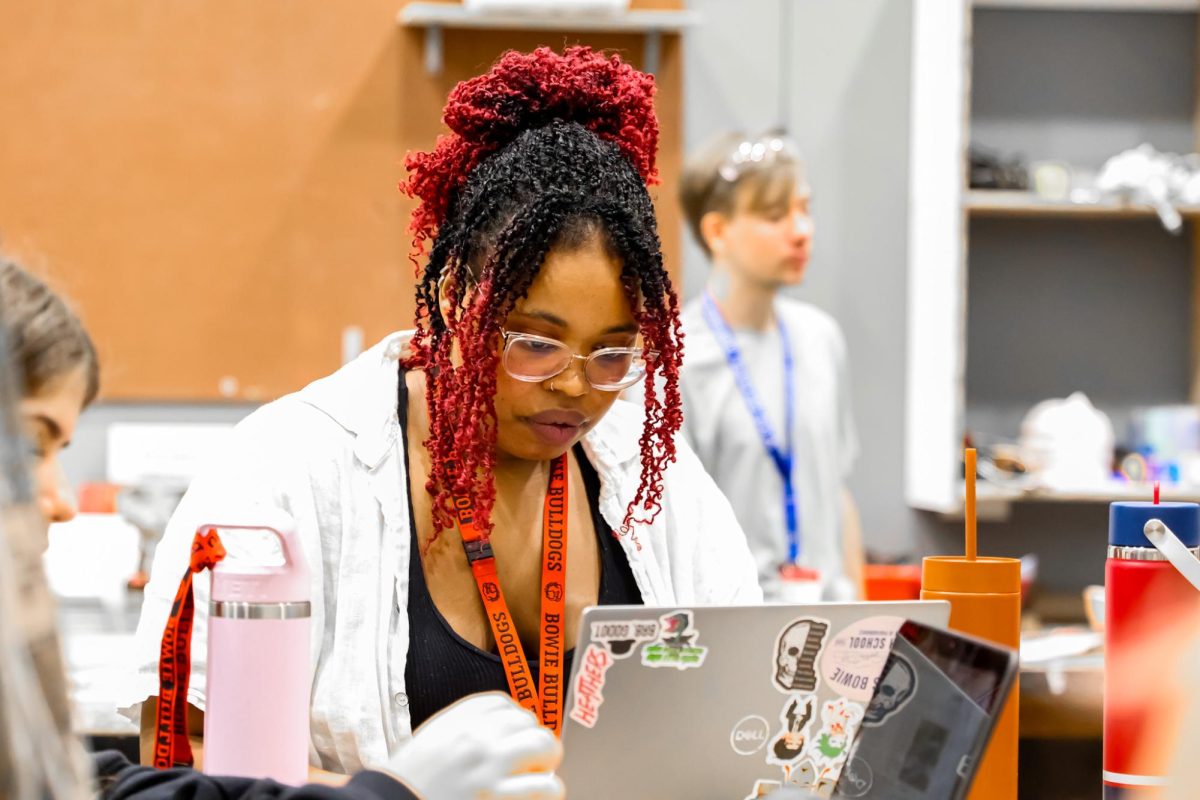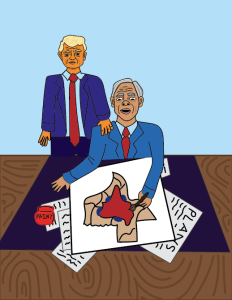Understanding Austin’s homeless population
May 5, 2021

Increased amount of people on the street with COVID-19 limiting resources and propositions to make it illegal to publicly camp
Homelessness in Austin is an obvious problem for a combination of reasons, such as unaffordable housing and lack of shelter space. Laura found herself being unable to support herself and her son after unavoidable events.
“I got where I am now after my husband passed away two years ago and the insurance ran out,” Laura said. “About three months before he passed I broke my hip and was in a wheelchair and couldn’t work. Once he passed away we stayed in a motel for a little while, but right now we’re living out of our truck.”
It’s commonly misunderstood how hard it is to get back into the workforce and find a stable living situation once you’re homeless. Services such as mail or even acquiring an ID become extremely difficult without an address or source of transportation. Sunrise Community Church runs a program on weekdays that helps the homeless acquire their needed services.
“The main reason we exist is to connect people to services and help them navigate through them, because it’s a really difficult system to navigate through,” volunteer coordinator Sarah Combs said. “We offer services such as helping them get food stamps or even just basic things like an ID. If you don’t have an ID then you can’t really do anything. We help get out there, get an ID, get replacement social security cards, and birth certificates. We partner with all these different organizations, with some of them coming to us.”
Robert Lam is a volunteer at Sunrise and has gotten to work with and help numerous homeless people.
“I’ve gotten to know quite a few people here,” Lam said. “And it’s funny because sometimes I won’t see them for a couple of weeks, and I realize that they’re working, they’re moved on in their life, and that’s a good thing at Sunrise. It’s not a bad thing if I don’t see you.”
In May voters will decide whether or not to reinstate the public camping ban in Austin. If passed, the proposition would make it illegal to camp in certain areas and sit or lie on public sidewalks.
“I’m actually kind of in the middle about it because I can see both sides of it,” Combs said. “Working here, I can see this is a need and if we made it illegal for them to camp out here, they would be gone, but they wouldn’t be gone, and they would not be inside. And I think the general public would think the problem was solved
or was not there anymore, which would mean that people would back off from giving and helping get resources. So that’s one side of it. I also agree that it’s not very attractive and so I understand wanting that gone and that it can affect tourism and things like that but the city is trying to solve a problem.”
Public camping used to be illegal but the lifting of the ban in 2019 homelessness became a more visible problem to Austin residents.
“I think it helped in the sense that it brought the issue to light,” Combs said. “But I think also from what I heard when you have a city that it is not illegal then it attracts people from out of town, or out of state, so then our homeless population grows, because of that.”
Contrary to that opinion junior Sonny Dedmon thinks the ban doesn’t address the right problem by banning public camping and that it does more harm than good.
“I don’t agree with Prop B because the homeless are just once again being dehumanized and people view them and their camps as clutter and an obstacle when attracting tourism when they should be viewing them as human beings who need help,” Dedmon said. “I think instead of people voting to essentially just make them less visible they should instead look for ways to actually help the homeless. People think by voting to criminalize people for being homeless they’re solving a problem, but all they’re doing is making it even harder for those people to get jobs and get out of debt because they’re being fined for being poor.”
Very commonly people associate the homeless as lazy and blame their situation on their own personal choices, but this is not the case for most of our homeless neighbors.
“A lot of what we see here at Sunrise is mental health,” Combs said.” So, mental health issues are a huge cause for homelessness because there’s not a lot of mental health resources for any age group out there that really addresses it in a long term.”
To help Austin’s homeless population there are many donation and volunteer opportunities.
“Volunteering is a great way to help,” Combs said. “Sunrise is open for volunteering on Saturdays for people who are not available during the week, but then also we have it open every weekday, where people can come volunteer, but there’s also other organizations and if you go to vouenteermatch.com and type in homeless there’s other opportunities as well.”









